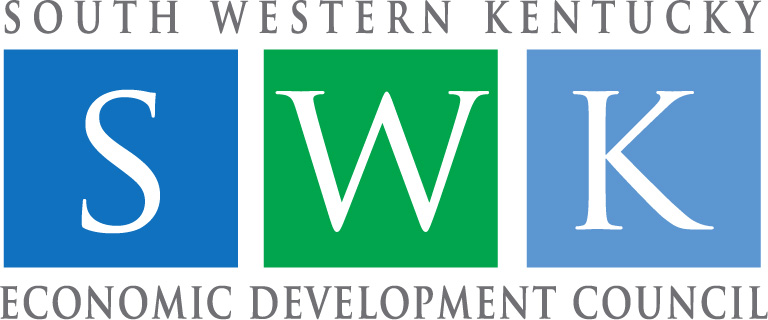The Benefits of Hiring A Veteran
04/05/2022

A perspective written by Robert “Bobby” Loyd, SFC Army (Ret).
Transitioning out of the military comes with a lot of uncertainty. Veterans know this even if we sometimes view it with rose-colored glasses. We possess a confidence that comes from being in the business of “getting it done” even when IT is poorly defined, or not defined at all. Dealing with that kind of uncertainty comes easy when you have a fire-team (4 soldiers) or division (10k to 15k soldiers) working alongside you. It’s when those teams go away that our troubles can arise. Community support during this time goes a long way towards helping veterans find and maintain employment. With many companies struggling to fill positions it can be beneficial for them to tap into this talented and driven population which grows by nearly 250,000 annually (1) and numbered 18.5 million as of 2020 (2). In South Western Kentucky alone, we see an average of 400-600 soldiers entering the workforce monthly thanks to Fort Campbell. Hiring veterans is beneficial not simply because of their numbers. They bring hard skill certifications, training, and experience, highly sought-after soft skills, as well as financial incentives for the businesses that hire them.
The Hard Skills
Formal training for the average service member varies depending on their rank at the time of separation and the level of responsibility they were entrusted by leadership. It’s not uncommon for young service members to be saddled with leadership positions two or three levels higher than their rank. This leads to many gaining both formal and informal training in those duty positions.
The U.S. military has more than 700 Military Occupation Specialties (MOS) (3) including combat arms, logistics, and human resources to technical fields like avionics, engineering, and healthcare. Promotions are competitive. Gaining that next rank means honing your skillset to set yourself apart from peers. This makes veterans a highly competitive group. Their self-starting nature leads them seek out education opportunities both formal and informal. Self-development is as important to them as professional development, and they share that knowledge with their subordinates, peers, and leadership.
Veterans possess skills in management, technical writing, and advising. These and others, come with their own levels of formal training but are always informally developed with a focus two to three ranks higher. The first formally leadership position is corporal and can be reached in as little as two years’ time in service. Their career progression models have built in training requirements that develop these and other skills. So, employers can take comfort in the fact that these skills are well-developed in a veteran hire.
The Soft Skills
Military service places a lot of emphasis on soft skills. They spend almost as much time developing this skillset as their technical and tactical proficiencies. Our military wouldn’t be as respected as it is without being highly adept in interpersonal skills like conflict resolution, communication, respect, teamwork, and more. They are critical for a well-disciplined fighting force. They become part of who the veteran is as a person and employee.
Career advancement is a central part of most employers’ pitches when they attend hiring events or workshops held by the Army’s Soldier for Life-transition Assistance Program (SFL-TAP) (4). They consistently highlight their veteran employees being some of the most valuable employees because of the soft skills.
The military’s diversity and unique mission “to deter war and protect the security of our nation” means that veterans know how to integrate quickly and effectively into a team. They’re nearly always singled out as assets to a company, and, because veterans talk to veterans, can become an effective recruitment point of contact as well.
The Incentives
The hard and soft skills a veteran brings to bear are great. However, the financial benefits of hiring veterans should also be mentioned. Tax credits or breaks exist for companies that hire qualifying veterans can receive a tax credit through the Work Opportunity Tax Credit (WOTC) (5), up to $9,600. Veterans also qualify for other credits that civilians do not, $4,478 on average.
Programs that help transitioning service members can also be beneficial to employers. Veteran Readiness and Employment (VR&E) (6) has several ways in which financial assistance is provided to participating companies in the form of salary subsidies, assistive technology, and salary reimbursement.
These programs and tax credits/breaks exist because of an identified need that’s going under-addressed. They can help alleviate an employer’s hesitance to hiring veterans by providing financial incentives for taking on veterans in a variety of roles.
In My Experience
For Army soldiers like myself, the Army’s Career Skills Program (CSP) (7) offers 14 different programs to help improve career options for soldiers. These programs provide training, licensing, and certifications in several career fields like Information Technology, welding, construction, CDL, and more. Motivated employers can always reach out to these programs to find ways to become involved either through developing an approved program or making CSP aware of potential individual internship opportunities they might offer.
Ask any veteran and you’ll discover a people that have dealt with, and continue to deal with, uncertainty and adversity. Being a transitioning soldier myself, I’m going to be part of that number soon. I’ll be seeking employment in South Western Kentucky after my time served here in the SWK at Fort Campbell.
I firmly believe that finding that next team, our place to belong after serving, can be the difference between success and failure. We are a highly adaptable, capable, and versatile group that know how to get a job done, and I’m not just saying that because I am one. Soldiers, Marines, Sailors, and Airmen approach uncertainty and adversity believing we can create order from chaos. Many companies have already seen the benefits of veteran employees so, why not see discover them for yourself?
Hyperlinks:
1. https://www.benefits.va.gov/transition/tap.asp#:~:text=About%20250%2C000%20service%20members%20transition,from%20military%20to%20civilian%20life.
2. https://www.bls.gov/news.release/vet.nr0.htm
3. https://www.thesoldiersproject.org/what-is-mos-in-military/
4. https://home.army.mil/campbell/index.php/about/Garrison/dhr/tap
5. https://www.dol.gov/agencies/eta/wotc
6. https://www.benefits.va.gov/vocrehab/employers.asp
7. https://home.army.mil/campbell/index.php/about/Garrison/dhr/tap/career-skills

